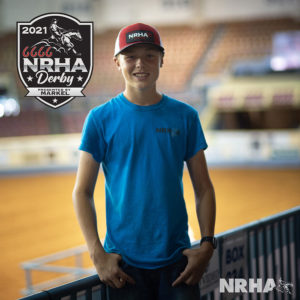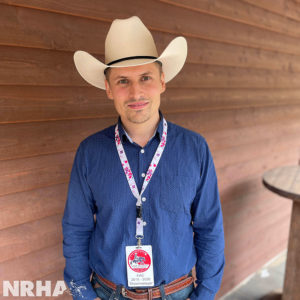Most people attending a National Reining Horse Association event are there to compete, but Selena Bradshaw doesn’t bring her horse to the show. Instead, she’s there to wrangle the competitors and keep the show running on track from the back gate. For five years, Bradshaw has either scribed with the judges or checked in riders at the back gate of the 6666 NRHA Derby presented by Markel and the NRHA Futurity.
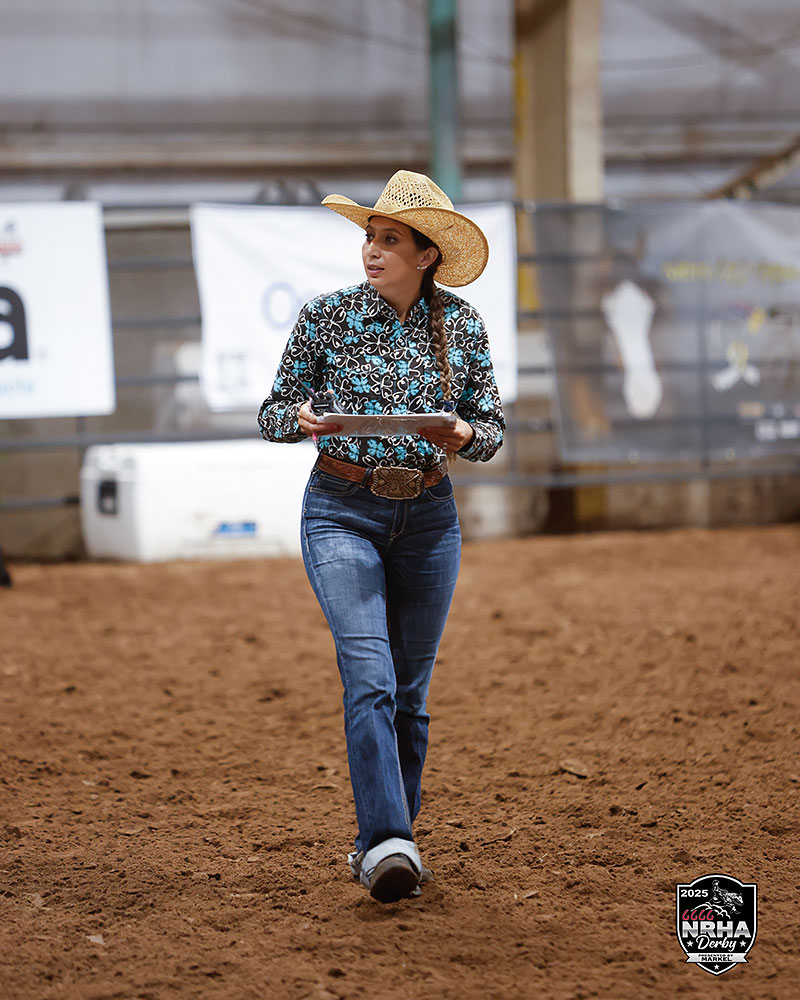
In 2020, Bradshaw was invited to scribe her first reining premier event, the National Reining Breeders Classic, when it was moved to Tulsa, Oklahoma. It lit a fire in her to be part of the industry.
“I always wanted to see the good horses, and I loved to go to a horse show, so I jumped at the chance,” said Bradshaw. “It was a little overwhelming because [the reining exhibitors] were all so shiny, clean and there were so many horses and so many people I’d only read about.”
When not working a reining event, Bradshaw also scribes for the American Quarter Horse Association Youth and World Championship Shows and the Colorado State Fair. She and her husband, Corey, live in Fletcher, Oklahoma, where they raise bucking horses and cattle. Bradshaw competes in ranch horse events. One of the reasons she enjoys scribing and working the back gate is because she can always learn something to apply to her own horsemanship.
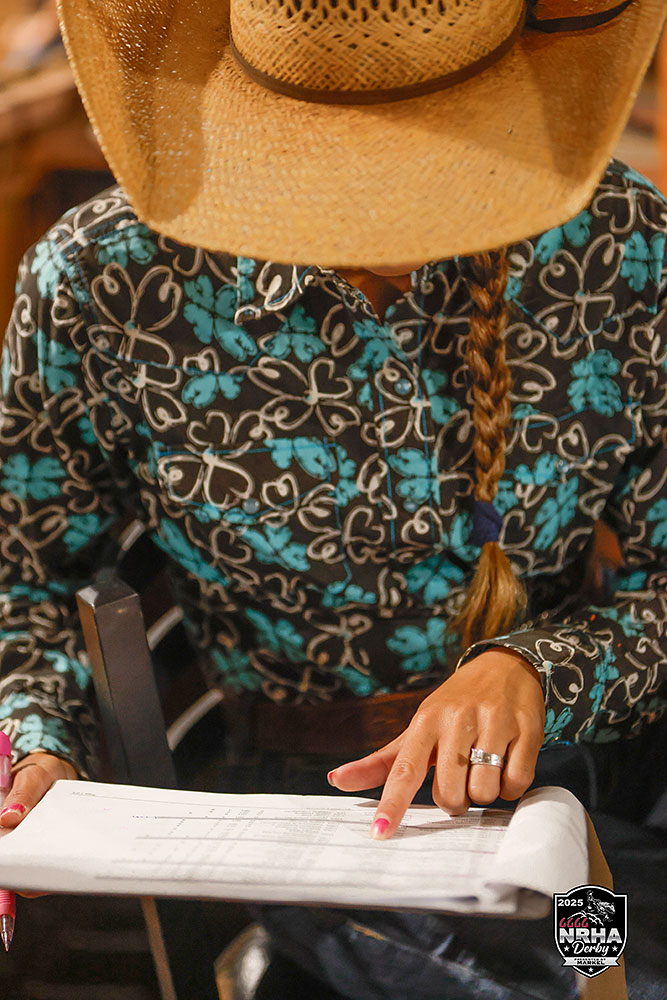
“Scribing is cool because I now have a good understanding of the penalties and plusses and the industry standard when I go show my own horses,” she said. “Most all of the judges are also trainers, and they will talk about why a horse does something that results in a penalty, and how to fix it.
“From the gate, it’s a little more fast-paced,” she continued. “It is cool to see how the horses are prepped and how everyone gets their mental game ready to go in.”
The long hours at the gate don’t deter Bradshaw. She finds joy in the small moments that she’s privy to throughout the day.
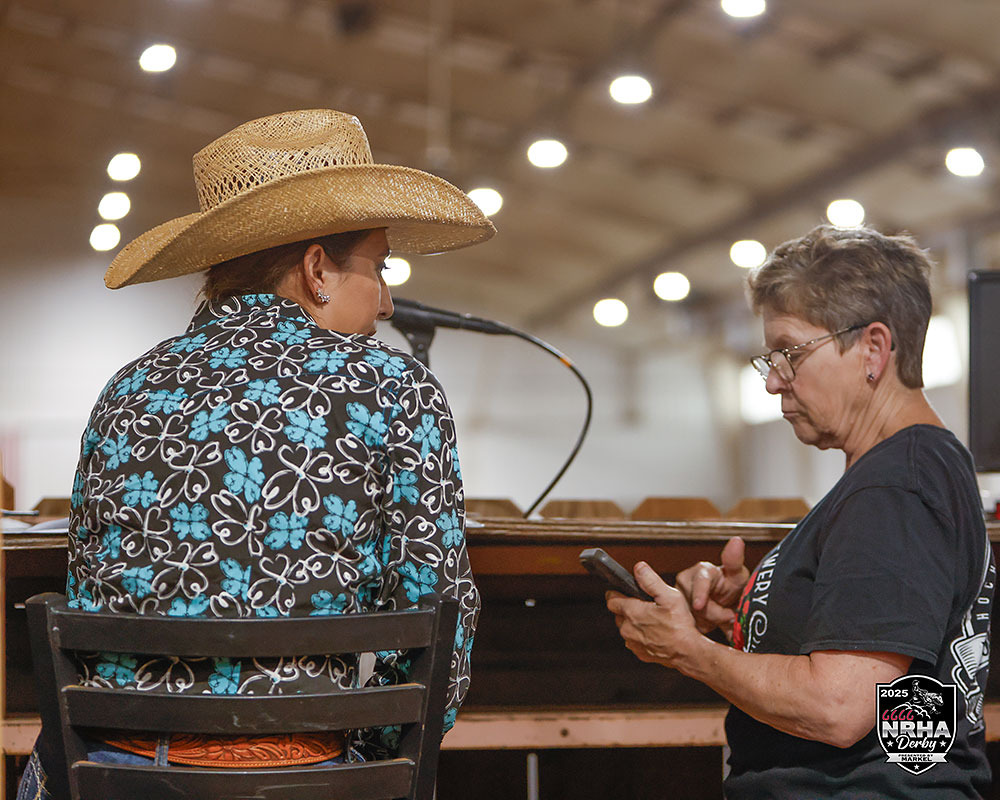
“In the back, I get to see the excitement when someone comes out—seeing a kid scream for their parent or a rider hug their horse,” Bradshaw said. “Seeing trainers love on their horses is always special because it isn’t something that is shown a lot.”
However, it’s not always a smooth ride through the major event. For all of the small joys, there is stress in locating and keeping track of all the horses and riders.
Bradshaw’s day begins with her writing the draw order, drags, and breaks on the arena’s dry-erase board. It begins pristine and clean, but often changes as riders move a draw due to conflict or scratch.
“I typically get here an hour before the show, get my papers and my board prepped,” she explained. “Then, I wait for everyone to come with scratches and moves. When people don’t tell us they’re going to scratch and just no-show, it throws us off because we spend a lot of time looking for them. Telling the gate beforehand really helps! When a rider needs to move but doesn’t tell me until their set, it also throws the timing off. I have small panics throughout the day because I’ll see someone, check them in, and when they disappear, I panic and go chase them down. We send everyone into the arena at the same time, no matter who they are, so having everyone ready is really important.”
Despite the potential panic attacks, Bradshaw says that reining shows are fairly predictable because it is the same event all day. Whereas at the AQHA Youth World Championship Show, for example, it could be classes of halter, then barrel racing, then reining, and it can be hard to prepare for all of them.
For Bradshaw, the people, horses and community keep her hooked to reining.
“It’s the people that inspire me to get better myself,” she said. “I cry when people win the championship, just like they do. My heart breaks for people when things don’t go as planned. I see just how hard the people in reining work; we are all out here working hard together. It’s a great way for me to be part of this industry without owning a top-tier reiner.”

